Historic N.S. property being transferred to Mi'kmaq in spirit of reconciliation
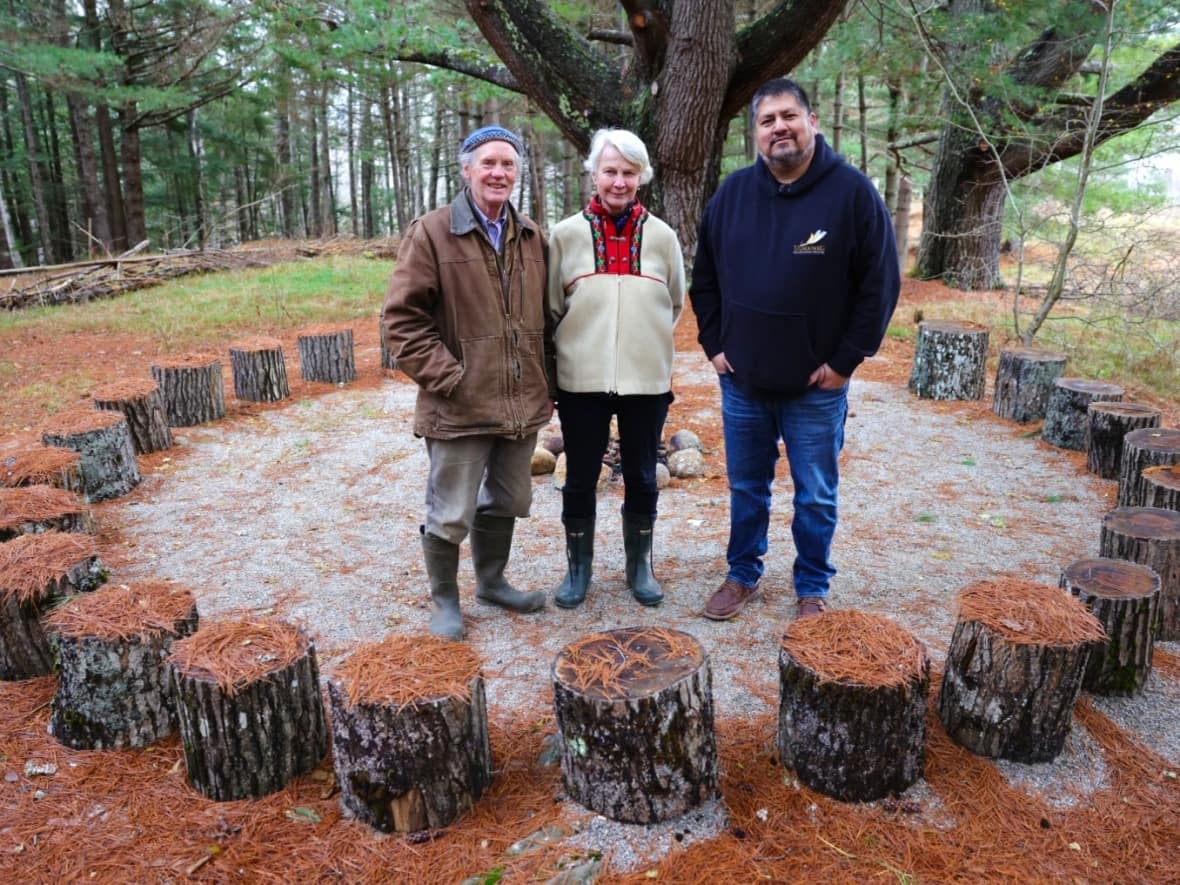
From the edge of Wentzells Lake, up the western slope of the LaHave River valley in Lunenburg County, N.S., there is a special piece of land.
So special that Jim and Margaret Drescher, even though recently bankrupt, scrounged up the means to buy it in 1990.
Jim said he considered it a singular opportunity, as the Wentzell family, which had been stewards of the land for 150 years, was preparing to sell. Timber brokers were queuing up with an interest in harvesting trees from the dozens of hectares of rich and diverse forest.
Jim said he feared it would be clear cut, but he and his wife had a different vision.
"We could tell right from the beginning that there was amazing potential here," said Margaret.
Now, after hosting four generations of the Wentzell family and three generations of Dreschers, the land is being transferred into the hands of the Mi'kmaq.
The Ulnooweg Education Centre will take the reins of Windhorse Farm this week. The centre is a branch of the Ulnooweg Development Group, which funds and fosters Indigenous businesses across Atlantic Canada.

Chris Googoo, chief operating officer of Ulnooweg, said the organization plans to invite students from across the province to the property to learn from the land and from Mi'kmaw elders about biodiversity and conservation.
"When I saw this [property] for the first time ... I just had a vision of children running around and just learning from the forest just by being here and just by being present," Googoo said.
A place for reconciliation
The Dreschers had reconciliation with Indigenous people in mind when they first connected with Ulnooweg more than three years ago to start talking about handing over control of Windhorse.
Both parties describe it as a "transition," involving part sale and part gift. They declined to say how much money is changing hands, but Jim said it's less than the $1.6 million the Dreschers had been seeking in 2016 when they started looking to sell.
"Ownership is really a colonial remnant. And we're giving up that ownership quite happily," Jim said.
The couple will now be mostly observers in the operations of Windhorse, but they won't be far away. They moved into a cottage just up the road three years ago and they said they expect to continue visiting Windhorse and roaming its woods.
"This is home for us and we will continue to be home here," said Jim.
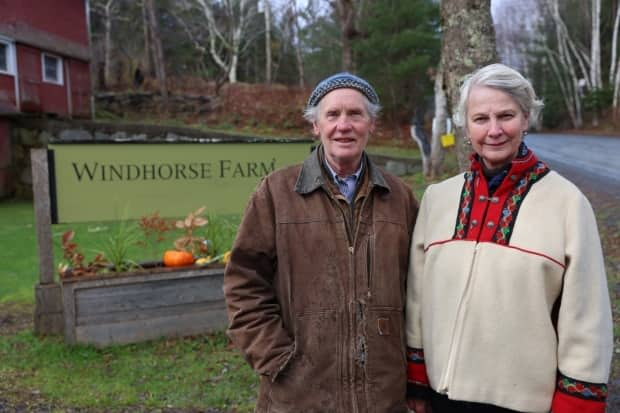
Googoo said Windhorse provides a safe space for bringing the dark parts of Canada's historical relationship with Indigenous people to light.
In particular, he pointed to the trauma endured by many Indigenous children at residential and day schools, and to centralization — an early 20th century government policy that forced Indigenous people in the Maritimes to move to a few designated locations.

The forest, Googoo said, acts as a conciliator between Indigenous and non-Indigenous people.
"[The forest] consoles us during that process as well," Googoo said.
"Because there's a lot of healing that needs to occur in that process. For me, as an Indigenous person, that I've been able to provide that and will provide that for future generations, where I see my own children less affected by the trauma ... that's kind of my hope."
The Ulnooweg Education Centre is a charitable organization and has started a fundraising campaign to help with the cost of the sale and future operations.
A change in name
When the Dreschers moved onto the property in August 1990, it was known as Wentzell Farm.
Within a couple weeks, the Dreschers renamed it. Windhorse is an homage to the horses that used to live in a meadow at the top of the hill and an old horse-shaped weather vane on the barn built by the Wentzells in 1914.

Windhorse is also the name of a Buddhist teaching and the Dreschers are long-time Buddhist practitioners. Margaret described the Buddhist meaning of the word as "the activity that comes out of one's fundamental goodness and kindness and wholeness."
"We felt like we had to say who we were," Margaret said of renaming the land. "We had to make a bit of an announcement of 'we've arrived and things are going to be a little different than a family farm.'"
The Dreschers continued with some of the Wentzell traditions, including gardening (Margaret's job) and selective logging with horses (Jim's job).
Within a few years, the couple expanded business operations to include a forestry school. The Dreschers built off-grid cottages where students would stay while they learned about ecological forest management practices.
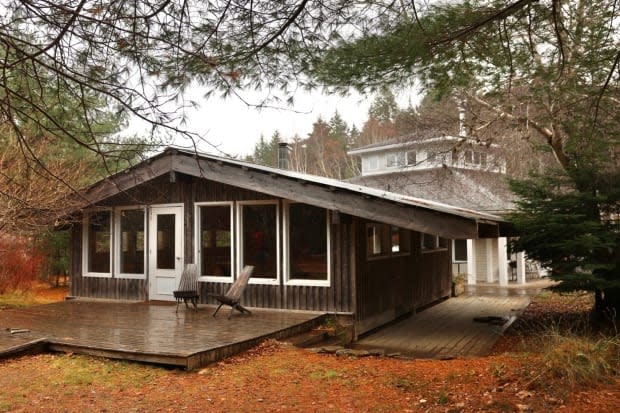
More years passed and the Dreschers added a lodge, hired more staff and offered more educational programs. Now Windhorse hosts weddings, retreats and vacationers, year-round.
Googoo said Windhorse Farm may be renamed again — a new name has not yet been chosen — but many other features will stay the same. People will still be able to rent the space for getaways and celebrations.
"I'm not just looking at Indigenous people to come here, but also other people that are interested to have that journey of decolonization, journey of reconciliation," Googoo said.
Mi'kmaw history at Windhorse
Googoo said the LaHave River, like all major river systems in Nova Scotia, historically acted as an important travel route for the Mi'kmaq, like a modern highway. He said Windhorse's proximity to the river adds to its significance.
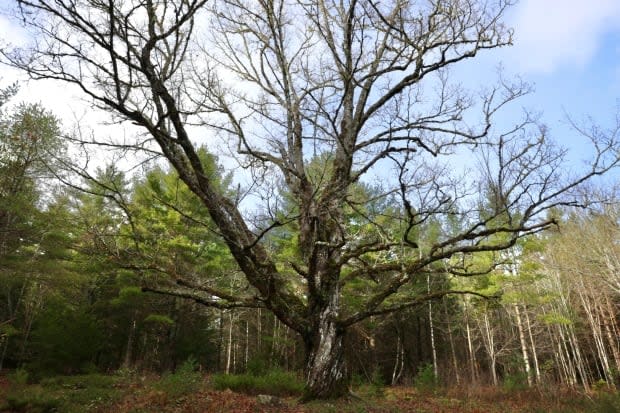
Windhorse may contain some other important pieces of Mi'kmaw history, too.
There's an old maple tree known as Mother Maple with a thick trunk and craggy branches covered in moss, lichen and fungi. The Dreschers estimate it's been growing for hundreds of years, but its exact age is unknown.
The Dreschers said the tree has a magnetism, attracting many Windhorse visitors. It's been the site of weddings and it's a good place to nap, according to Jim.
It's also the source of some mystery, because it's surrounded by a sizable clearing that doesn't seem entirely natural.
A Mi'kmaw elder suggested to the Dreschers that the clearing may be evidence the spot was a place for Mi'kmaw ceremony.
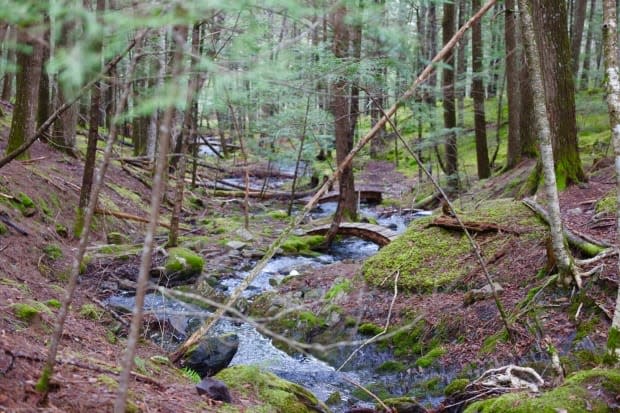
There are several other spots around the property that also have a magnetic quality, like Mother Maple. Among them is Drala Pool, a peaceful spot on one of Windhorse's two brooks that feed into Wentzells Lake.
Another is a small stand of old hemlock trees. Again, their exact ages are unknown, but the Dreschers think some of them likely rival the 532-year-old hemlock that was just named the oldest tree in the Maritimes.
Googoo has contributed to creating another unique spot on the property for people to gather. Next to two tall pine trees, a circle of tree-stump stools are arranged around a space for a sacred fire. There's a small opening in the stumps, facing east toward the sunrise.
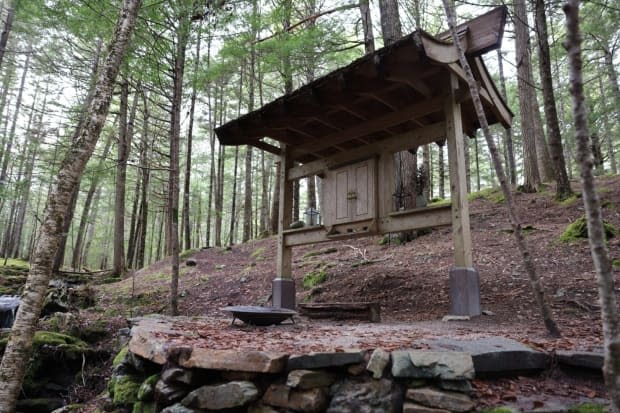
He said it's a place for teaching and learning, where titles and hierarchies are left outside the circle.
"One of the things that we [Mi'kmaq] value is that we are all children of mother earth, children of our creator, and we are all sitting around the fire of life as equals, all our species."
The fire circle is named after Cody, the last horse to live at Windhorse Farm. Cody died last December.
MORE TOP STORIES

 Yahoo Movies
Yahoo Movies 
